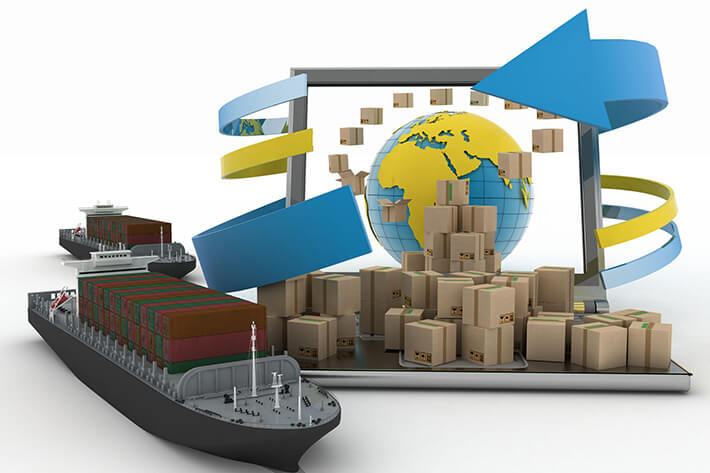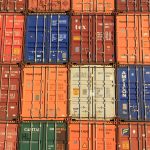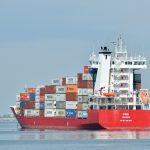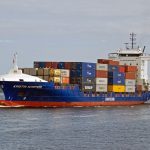
Importing products from foreign suppliers is pretty easy, isn’t it? It works like clockwork: you place an order and your carrier makes sure it arrives at your warehouse as agreed, set, and forgotten. Until it is ready.
Freight Forwarder helps you with customs clearance, documentation requirements, government fees, surcharges, and taxes for each country. Nobody thinks about all the backstage activities unless something goes wrong.
In short, Freight Forwarder offers an international and national door-to-door delivery service, facilitating all phases of a shipment’s life cycle according to the agreed Incoterm.
What is a Freight Forwarder?
In simplest terms, a Freight Forwarder is an agent responsible for the movement of goods on behalf of the cargo owner. This responsibility can begin from the time when we collect the goods from the seller until they are delivered to the place specified by the buyer.
The duties and responsibilities of a Freight Forwarder are often defined by carried out by a Clearing and Forwarding (C&F) agent. In other cases, exporters may contract with a separate clearing agent to meet regulatory requirements or prefer freight forwarding companies.
The roles and responsibilities of a Freight Forwarder can be very diverse and vital to international trade. Nevertheless, the freight forwarding business also includes several important functions.
Main functions of a Freight Forwarder
Freight Forwarding companies like Ausie Logistics play a crucial role in the global moving industry. With the increasing complexity of the intermodal transport system, the role of the Freight Forwarders in the export-import business becomes even more important.
These are some important points that an exporter should consider when choosing their Freight Forwarder. Evaluating a freight process from these aspects will make the process of selecting your agent much easier and more effective.
- Experience
- Network in the market
- Connections to recognized international associations
- Services offered
- Specialty
- Your business needs
- Reputation in the market and with customers References
- Prices
Explore the main roles of a Freight Forwarder.
A Freight Forwarder plays a fundamental role in the international trade and transportation of goods. Traditionally, the Freight Forwarder acted as a link between the carrier and the owner of the goods, providing shipping and customs clearance services.
Today, freight forwarders have taken on new roles in addition to supporting the goods owner and the carrier. Currently, they transport the carriage by their own means or by hiring other carriers.
Even with this role, the carrier does not accept the shipment but uses the information provided by the owner of the goods on the type, weight, dimensions, and purpose of the shipment.
The following are some of the important roles of a Freight Forwarder:
1. Tracking of Shipments
Forwarding companies use a transport management system (TMS) to ensure transparency at every stage of the transport of a shipment.
2. Customs clearance
This crucial part of the shipment requires a special license: a customs clearance license. Licensed brokers are the only people responsible for managing and filing extensive documentation to complete import/export processes.
3. Packaging, Storing, and distribution
Prior to shipment or upon arrival of the goods, the carrier may arrange for packaging, storing, and distribution. The Freight Forwarder will store the goods before export or import while waiting for transportation or distribution.
Sometimes a contract of carriage may include warehousing services before and after delivery of the cargo while it awaits customs clearance. Some carriers may have their own warehouses to store the carriers’ goods (or parts of goods).
But, for the most part, this is the service your carrier offers to arrange storage at a warehouse owned and operated by a conveniently located subsidiary.
4. Negotiations
Bargaining for lower shipping rates with carriers is a challenging task. The art of this deal is to address the interests of the carriers by weighing the pros and cons of their type of cargo, timing flexibility, credit status, space/tonnage requirements, and more.
5. Cargo Insurance Services
Unlike cargo insurers, Forwarders arrange cargo insurance for a service fee as agents for their customers. Some of the best Forwarders recommend their customers get free insurance for their cargo.
However, in some countries, selling cargo insurance is illegal. Freight Forwarders can offer you cargo insurance, also known as freight insurance.
Moreover, cargo insurance compensates the beneficiary for loss when the goods are damaged or stolen during transport.
6. Freight scheduling
Coordination and freight scheduling are the most tangible parts of a carrier’s skill set. When you hire a Freight Forwarder to manage the logistics, here’s a chance for them to show off their skills.
It takes a careful planner to determine if it is cost-effective to consolidate a shipment, ensure on-time departures, and weigh the feasibility of intermodal shipping options.
7. Freight Consolidation
Carriers may have multiple customers that require this shipment that does not require a full container. Moreover, in these cases, the shipping cost will be split among all participating customers.
Freight consolidation for Less Than Container Load (LCL) shipments is a service offered by carriers, whereby multiple smaller shipments are booked on board the same container.
The Final Wrap up
Ausie Logistics is an industry-leading Freight Forwarder specializing in providing logistics and freight forwarding services. However, contact us today to find out how the Ausie Logistics team can help you improve your logistics processes.










